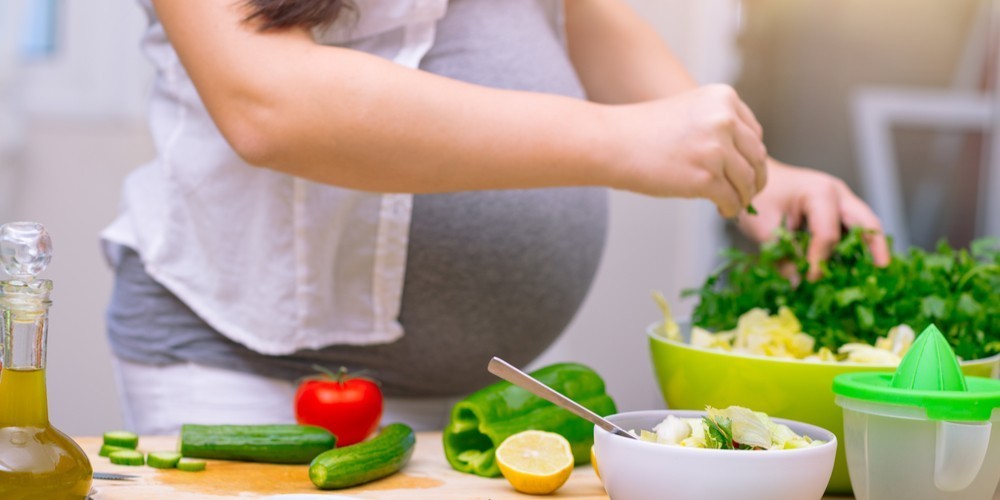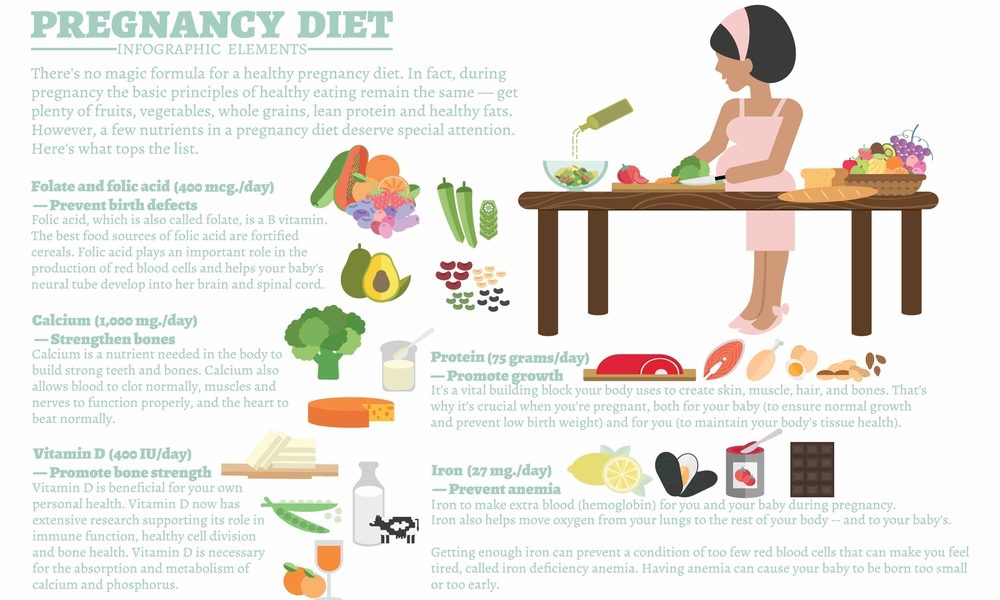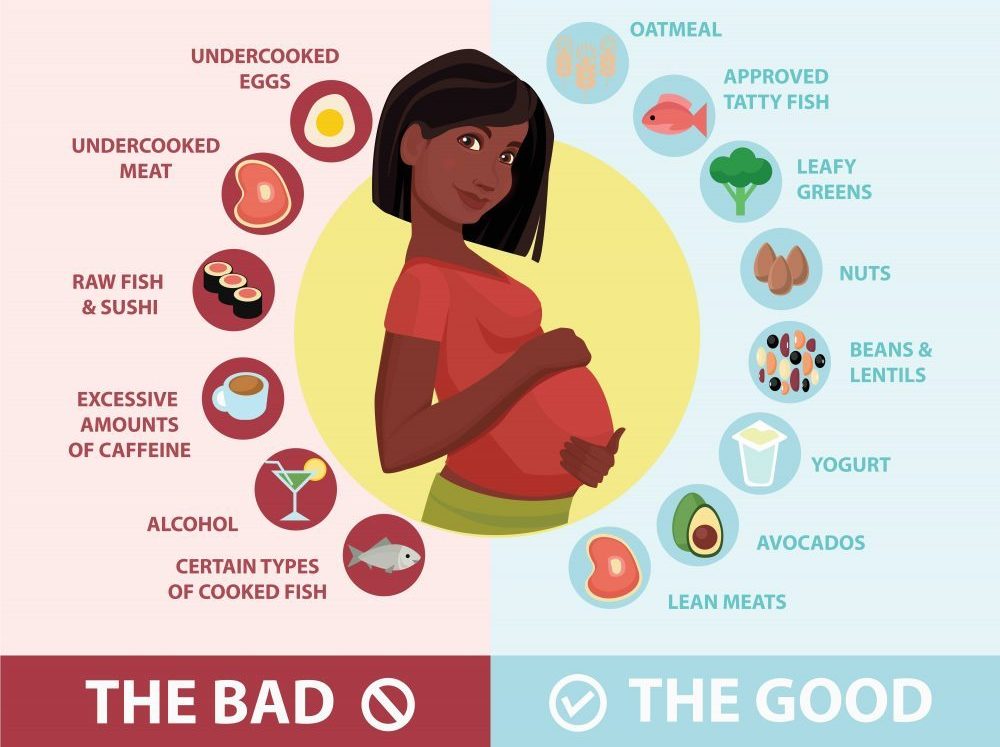
Pregnancy is an alluring phase in a woman’s life. Your body and soul undergo a beautiful transition. The thought of housing a little life inside you is just ethereal and surreal. There will be a lot of advice flooding from friends, family, in-laws. Therefore, a woman must always have a word with her gynaecologist before following anything blindly.
Your body’s requirement changes, your skin glows differently, hormonal fluctuation occurs, cravings for food anytime are all normal. Surrounded by different changes altogether, you sometimes tend to ignore the daily routine things which are but essential for you and your little one.
Also Read: How does pregnancy change the female?
So, here in this blog, we are going to discuss the diet chart that a pregnant woman must follow to keep up with the good health in this crucial phase.
Table of Contents
Foods that should be included in your diet during pregnancy
A balanced and healthy diet is a must for a pregnant woman. The diet must be enriched with nutrients that the body requires. The requirement doubles up in pregnancy as two bodies need energy. Therefore, here is the list of foods that a pregnant woman should include in her diet.

Protein
Experts recommend consuming 75-100 grams of protein daily as it plays a vital role in the growth of fetal tissue, including the brain. It also helps in increasing blood supply and in the growth of breast and uterine tissues which is important during pregnancy. Beans, legumes, nuts, tofu, soy products are some good sources of protein for vegetarians. Healthy animal source proteins include fish, lean meat, chicken, seafood and eggs.
Fruits and vegetables
Five portions of fruits and vegetables in the whole day are recommended by health experts as the intake of fresh vegetables and fruits result in less wheezing in infancy. Consumption of fresh fruits and vegetables also help to protect your baby from certain types of allergies and allergic symptoms in your baby later in life.
Green and yellow vegetables
Some researchers suggest that citrus fruits, green and yellow vegetables contain beta carotene which helps in reducing childhood eczema.
Vitamin E
Spinach, broccoli, butternut squash helps prevent wheezing and asthma for the mother and in turn resulting in a healthy pregnancy phase. So, Vitamin E is an antioxidant that prevents miscarriage but it should only be consumed under the guidance of a medical practitioner during the early days of pregnancy.
Also Read: 9 Benefits of Coconut Water During Pregnancy
Vitamin C
Vitamin C is important for normal immune protection. So foods rich in Vitamin C can be consumed in pregnancy. Such sources might include tomatoes, citrus fruits, broccoli, and red green and yellow peppers. Megadoses should be avoided as it might result in preterm birth. You should consult your doctor before deciding about what quantity to intake.
Fats
Fats should not be consumed more than 30% of your diet in pregnancy. Over intake of fats might develop glucose resistance, glucose overproduction and diabetes in offspring. A balance is what healthy diet demands. Examples of monounsaturated foods include olive oil, peanut oil, sunflower oil, avocado, many nuts and seeds.
Starchy carbohydrate-rich foods
Such foods include potatoes, rice, pasta and bread, etc. Carbohydrates are an important component of a good pregnancy diet as they are high in energy.
Calcium
Calcium is very important during pregnancy as it helps in the development of your baby’s bones and teeth. General sources of calcium include cheese, milk and yogurt. Vegetable sources of calcium include dark leafy vegetables like broccoli, green French beans.
Fiber
Fiber is very important in pregnancy as it aids proper digestion and prevents constipation. Eating plenty of fiber during pregnancy will eliminate the risk of hemorrhoids which is very common during conception as the baby grows. Foods such as peas, legumes, turnips, sweet potatoes should be included in the diet for adequate
Zinc
Zinc plays a major role in normal growth and development, several biological functions and cellular integrity including acid metabolism and protein synthesis. It is also important for the development of the fetus. The best sources of zinc include tofu, chicken, lentils, sunflower seeds, wheat gram, rice, pasta bran and a lot more.
Folic acid
Folic acid is important during pregnancy as it helps in preventing neural tube defects. Experts suggest that 400 mcg of folic acid before and during pregnancy can help prevent birth defects of your baby’s brain and spinal cord. Fortified cereal is a good source of zinc.
Iron
Iron is a very vital part of hemoglobin which is the oxygen-carrying pigment and main protein in the red blood cells. It’s very important as it carries oxygen throughout the body. Because pregnancy will make the blood in your body increase by 50%, you need more iron to make more hemoglobin for all that blood. Inadequate iron might result in mother becoming anemic and chances of such mishappenings may increase:
- Fatigue, irritability, depression in the mother during pregnancy.
- Premature baby.
- Low weight baby.
- New-born death.
- Stillbirth.
Foods which are a rich source of iron are:
- Lean meat
- Poultry
- Dried fruits such as apricots
- Egg yolk
- Some fortified whole-grain cereals
- Legumes
So we have seen the list of foods that should be embraced while you have that precious life in your womb without any complications. Now, you must also be aware of the list of foods that should be avoided in pregnancy as it could hamper the wellness of you and your baby.
Also Read: Why is there Green Discharge During Pregnancy?
Foods to avoid during pregnancy
- Too much caffeine doctors suggest to limit your caffeine consumption of the day in pregnancy as high levels of caffeine can result in babies with low birth weight which will invite many health problems in the future for them. Too much caffeine can also cause miscarriage. You should not have caffeine more than 200 mg per day.
- Herbal teas There is little information about the safety of herbal teas during pregnancy. So it’s always better to avoid what is not known. Else you can have it in moderation as per your doctor’s advice.
- Uncooked or partially cooked meat with improperly cooked food, the chances of bacterial and viral infection will rise, which may further cause food poisoning and may also cross the placenta and harm your baby’s wellbeing.
Raw eggs:
Anything with half-cooked or undercooked eggs must be avoided as it might lead to salmonella infection.
Zero calorie food:
Foods with high sugar and fat such as cakes, biscuits, cookies, candy and chips should be kept at minimum consumption as they have little nutritional value and might cause trouble maintaining a proper weight for a pregnant lady.
High mercury content:
Mercury is a highly toxic element and is usually found in polluted water. Some fish have high mercury content like tuna, shark, and swordfish. Their consumption should be avoided.
Raw sprouts:
Raw sprouts are at a greater chance of being contaminated inside the seeds. Sprouts are safe to consume after they are cooked.
Unwashed fruit or vegetable:
The surface or peel of a fruit or veggie may not be free of dirt with several pesticides, parasites and bacteria. It’s important to thoroughly rinse the vegetables and fruits with water before eating.
Alcohol:
It’s best to avoid alcohol completely during pregnancy as even a small amount can cause a great deal of harm to your baby’s brain development.
Processed junk foods:
Eating too much junk food during pregnancy may result in excess weight gain, acidity, gestational diabetes and complications that might have long term health complications for your baby.

Take Away
So we have got some insights regarding what to eat, what to limit and what to quit completely during pregnancy. All the lovely “mommies-to-be” should understand that diet plays a very important role in pregnancy as it alters your mood, your health and your little one’s health to a great extent. With a baby in your womb, you have to be a lot more cautious and aware of several facts and information related to diet and other aspects as you become responsible for yourself and your baby’s health.
Therefore, always prefer well cooked, green and leafy vegetables and balanced food to get all the nutrition that you need. You should eliminate the chances of food poisoning by following a proper diet under the guidance of a medical practitioner. Consult your gynecologist for the best advice.
“Eat healthily, stay hydrated, avoid unhealthy food and take care of yourself and the one inside that baby bump!!”
Also Read: Fast During Pregnancy- Is It Safe?







